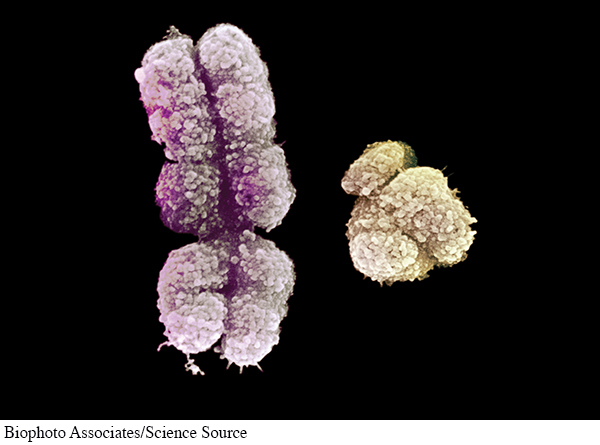
Human Sex Chromosomes: X and Y Biological sex is determined by the 23rd pair of chromosomes, the sex chromosomes. While every egg cell has one X chromosome, every sperm cell has either one X or one Y chromosome. Whether a zygote develops into a male or a female depends on whether the egg is fertilized by a sperm cell with a Y chromosome (XY, resulting in a male) or by a sperm cell with an X chromosome (XX, resulting in a female). Notice that the X chromosome (left) is larger and has more genes than the Y chromosome (right). This confers some protection against certain genetic disorders for females. Why? Because by having two X chromosomes, females with a disease- d-
Biophoto Associates/Science Source